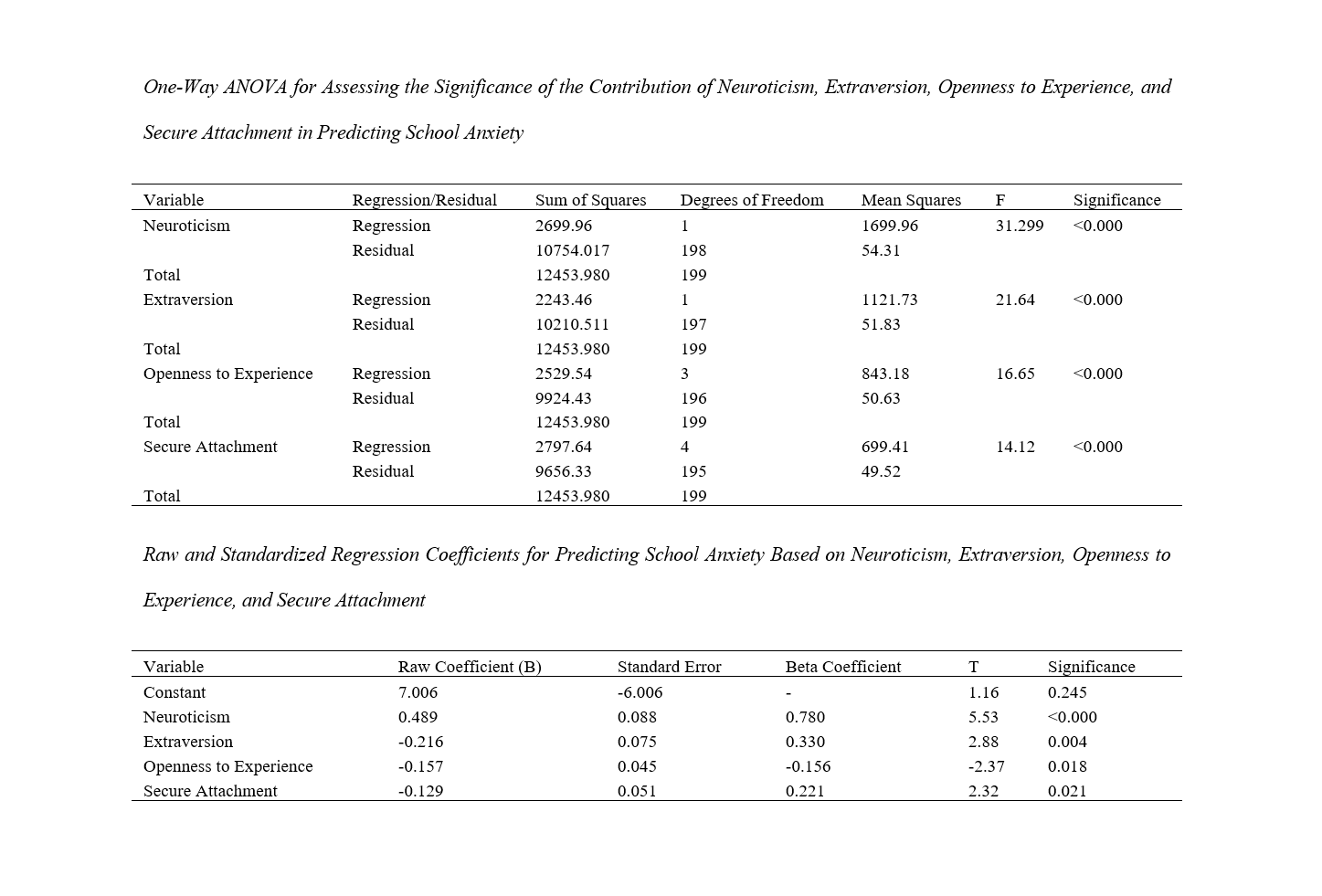Predicting School Anxiety Based on Procrastination, Attachment to Parents, and Students' Personality Traits
Abstract
Objective: The aim of this research was to predict school anxiety based on procrastination, attachment to parents, and personality traits among students in Diwaniyah city, Iraq.
Methods and Materials: This study was descriptive and correlational. The statistical population consisted of both female and male students from Diwaniyah. The sample was selected through convenience sampling, including 300 students of both genders. The research instruments were the researcher-made School Anxiety Scale, Solomon and Rothblum's (1984) Academic Procrastination Questionnaire, Armsden and Greenberg's (1987) Inventory of Parent and Peer Attachment, and Costa and McCrae's (1992) Five Factor Personality Questionnaire.
Findings: Results indicated that neuroticism and insecure attachment styles to peers and parents have a significant positive relationship with academic procrastination, while secure attachment to parents and peers, openness to experience, and conscientiousness have a significant negative relationship with academic procrastination; extraversion and agreeableness were not related to academic procrastination. Stepwise regression results showed that openness to experience, conscientiousness, and secure attachment style to peers and parents can predict procrastination.
Conclusion: It can be concluded that school anxiety can be predicted by procrastination, attachment to parents, and students’ personality traits.
Downloads

Downloads
Additional Files
Published
Issue
Section
License
Copyright (c) 2024 Ali Hamdan Kafi (Author); Zahra Yousefi (Corresponding Author); Radhi Hassan Obaid, Ilnaz Sajjadian (Author)

This work is licensed under a Creative Commons Attribution-NonCommercial 4.0 International License.














